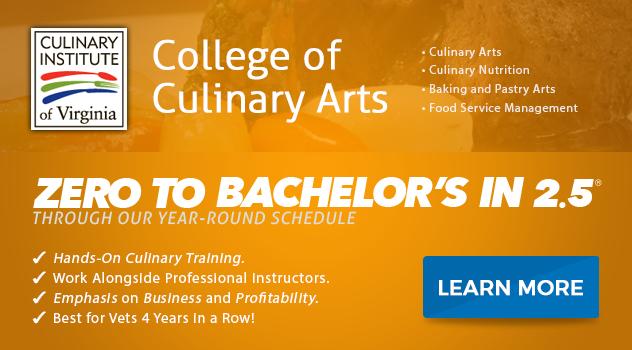Why Should Chefs Care About Culinary Nutrition?
As customer needs changed and people became more aware of just how important healthy eating is, culinary tastes began to shift away from high-calorie foods and towards healthier options. Additionally, with the rise of food allergies and the recognition of gluten-free options, sometimes eating healthy is not just a personal choice, but a matter of necessity. When it comes to cooking, not being concerned with culinary nutrition could damage a chef’s ability to cook for a varied group of people and impact a manager’s decision on whether or not to hire them. Let’s take a look at why culinary nutrition is so important for chefs.
Chefs Need to Know how to Be Versatile
While a culinary education focuses on how to prepare a variety of foods, a restaurant will often specialize in one. With a broad education in nutrition, a chef just starting out will have a better idea of how to adapt recipes for health-minded individuals. Even in restaurants where health is not on the forefront of a chef’s mind, there are traditionally salads and lower-calorie options for diners who want to eat healthy.
Chefs Need to Know how to Accommodate Diners
It’s one thing to want to cater to people who want to eat healthy. It’s another thing when your cooking could trigger a deadly allergy for a customer. Sometimes avoiding allergies could be as easy as leaving mushrooms off of a dish. Other allergies can include soy, dairy, or gluten. It’s not as easy to remove these items from when cooking.
This is why alternative baking and the ability to substitute ingredients can be so important. A working knowledge of what the allergen is, what it constitutes, and how to avoid it during cooking is crucial for your career and the restaurant you’re working for. Being able to assure a hiring manager that you can cook for even the most serious food allergies is going to be a great asset to you.
Chefs Could Work in Specialty Restaurants
Whether it’s a vegan cafe, a gluten-free bakery, or a restaurant attached to a health spa, more health-focused dining facilities are available than ever before. With a degree focused in nutrition and the knowledge on how to make food not only healthy, but delicious, and allergy-conscious, a chef has a strong resume for working in a specialty eatery. This opens up more opportunities for chefs and really, if you’re interested enough in nutrition to want to focus your degree on it, you most likely will want to work in your niche area as well.
Are you excited about cooking nutritious? If you’re interested in earning an Associate of Applied Science in Culinary Arts and Applied Nutrition, consider ECPI University’s Culinary Institute of Virginia. With their accelerated schedule and year-round classes, you could work your way through the kitchens and classrooms in as little as 15 months. For more information, contact a helpful admissions advisor today.
It could be the Best Decision You Ever Make!
DISCLAIMER – ECPI University makes no claim, warranty, or guarantee as to actual employability or earning potential to current, past or future students or graduates of any educational program we offer. The ECPI University website is published for informational purposes only. Every effort is made to ensure the accuracy of information contained on the ECPI.edu domain; however, no warranty of accuracy is made. No contractual rights, either expressed or implied, are created by its content.
Gainful Employment Information – Culinary Nutrition - Associate’s
For more information about ECPI University or any of our programs click here: http://www.ecpi.edu/ or http://ow.ly/Ca1ya.





